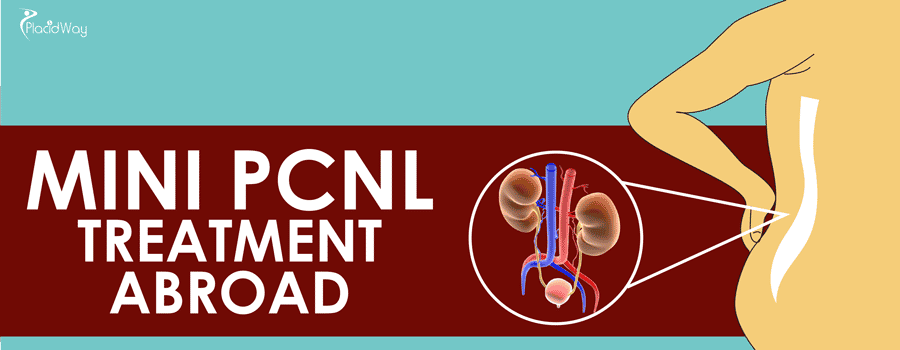
Overview
Mini percutaneous nephrolithotomy procedures are designed to deal with kidney stones. Kidney stones can be extremely painful and cause sharp, intense pain in the lower back region, typically on the side of the affected kidney. Calculi or stones moving around in the urinary tract irritate kidney tissues and can block urine passage. If kidney stones migrate down into the ureter, the tube that transports urine from the kidney to the bladder, an individual may experience severe abdominal and groin pain.
Prior to a mini or standard percutaneous nephrolithotomy procedure, an individual will undergo a complete physical examination, an electrocardiogram or EKG, metabolic tests, complete blood count, urine tests, and also test that measure clotting factors in the blood.
Benefits of a Mini PCNL Procedure
Any individual experiencing the pain of the kidney stone will benefit from a mini PCNL procedure, which is usually recommended if other nonsurgical methods for resolution are not successful. The PCNL procedure removes renal calculi in an effort to prevent damage or obstruction of the urinary tract, pain relief, and to reduce the risk of a urinary tract infection.
A mini-PCNL procedure is a more contemporary and minimally invasive approach to the procedure due to its use of a miniature nephroscope. In order to understand mini PCNL procedures, it's important to understand standard percutaneous nephrolithotomy.
Kidney Stones
Kidney stones take on numerous forms, depending on their chemical composition. The most common types of kidney stones by chemical composition include:
Standard Percutaneous Nephrolithotomy
Standard percutaneous nephrolithotomy or PCNL, is a procedure that takes three to four hours under general anesthesia. An open incision is made on the patient's back over the kidney, into which a nephroscope is inserted. The nephroscope is a medical instrument fitted with a fiber-optic light source as well as two channels: one is used for viewing the interior of the kidney, while the other is used to irrigate or wash out the area. A small device with a basket type structure on one end is able to grasp and remove kidney stones. Larger kidney stones are broken into smaller pieces utilizing Holmium laser, electro-hydraulic or ultrasonic probes.
Mini Percutaneous Nephrolithotomy (Mini-PCNL)
The mini percutaneous nephrolithotomy is a new form of the procedure that follows the same process, except in its use of a smaller or miniaturized version of a nephroscope. This approach to kidney stone treatments has been found to be nearly 100% effective when removing stones between 0.4 and 1 inch in diameter. The procedure offers numerous benefits, including fewer complications, a shorter operation time (approximately 1½ hours as opposed to the three or four hours through standard approach), as well as shorter recovery times for the patient.
How Much does a mini-PCNL Procedure Cost?
Cost of a lithotripsy procedure in the U.S. depends on the type of stone being treated, it’s size and location. Because it’s so specialized, a lithotripsy procedure in the U.S. can cost an average of $17,000, though you can find some for about $5,000, depending on the size of the stone. In India, you can receive the same procedure for about $1,300 and in Singapore for about $2,650. Patients who opt for lithotripsy should be aware that there is an approximately fifty-percent chance that stones will reappear within five years.
Who Performs Mini-PCNL Procedures?
A urologist is a doctor who has specialized in training in branches of surgery to the kidneys, bladder, or urethra, male reproductive organs or pelvic surgery. Choose a surgeon who has undergone basic and comprehensive education in general surgery, who then undergoes additional training in urology, a surgical subspecialty. He or she should be approved to practice in accredited healthcare facilities or hospitals. Specialists should be experienced and knowledgeable regarding specific conditions.
Get in touch with us and find out more about your options!
Urology Abroad | Best Urology Center